Conflict
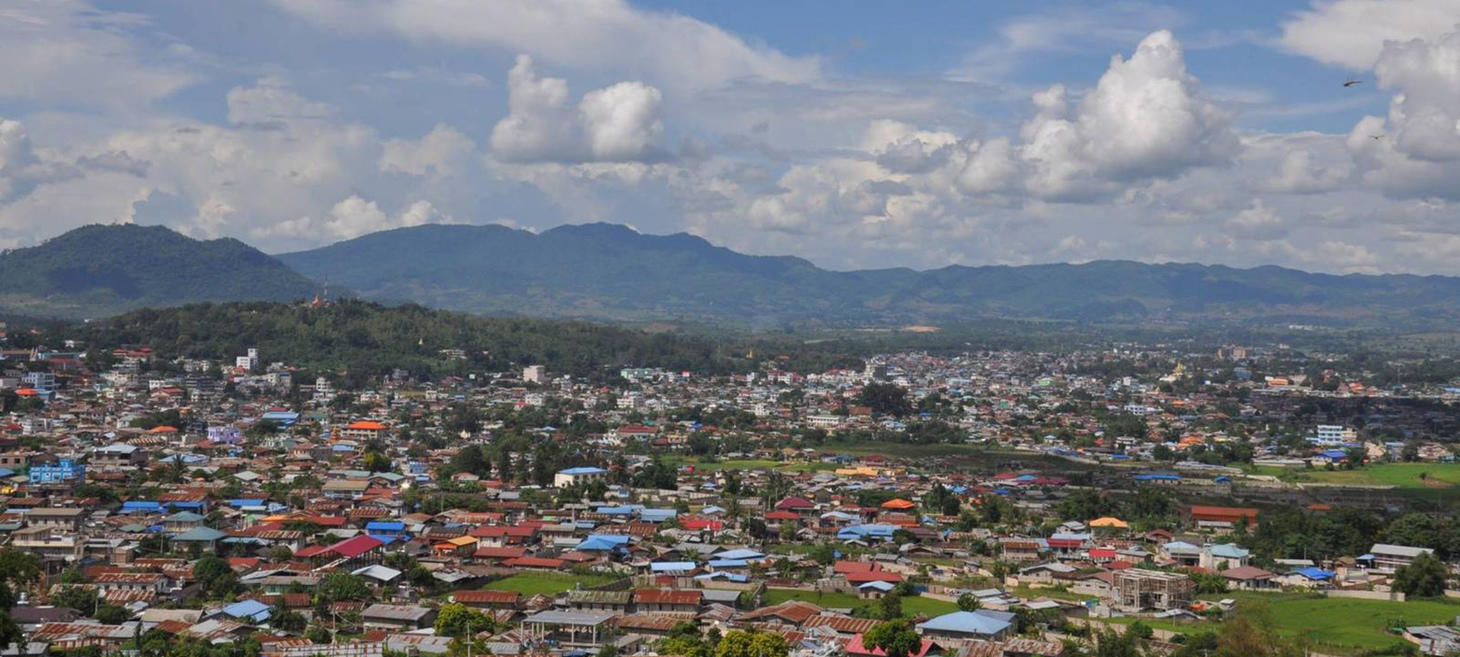
Myanmar Junta Troops Surrender Key Shan Base, Ethnic Armies Advance Into Lashio
In a significant development in Myanmar's ongoing conflict, junta troops have surrendered a key base in Shan State, leading to advancements by ethnic armies into Lashio. Intense clashes erupted in Lashio, the capital of northern Shan State, following the capture of a junta frontline military battalion's headquarters by the Brotherhood Alliance and its allies. This offensive comes after the alliance successfully captured the headquarters of Light Infantry Battalion 291 south of Lashio, prompting junta troops to abandon their position and retreat. The escalation in violence has resulted in civilian casualties and damage to infrastructure, including homes and a hospital, as the junta resorted to airstrikes and shelling in defense. Amidst the chaos, thousands of Lashio residents have begun fleeing the town, seeking safety from the escalating conflict.
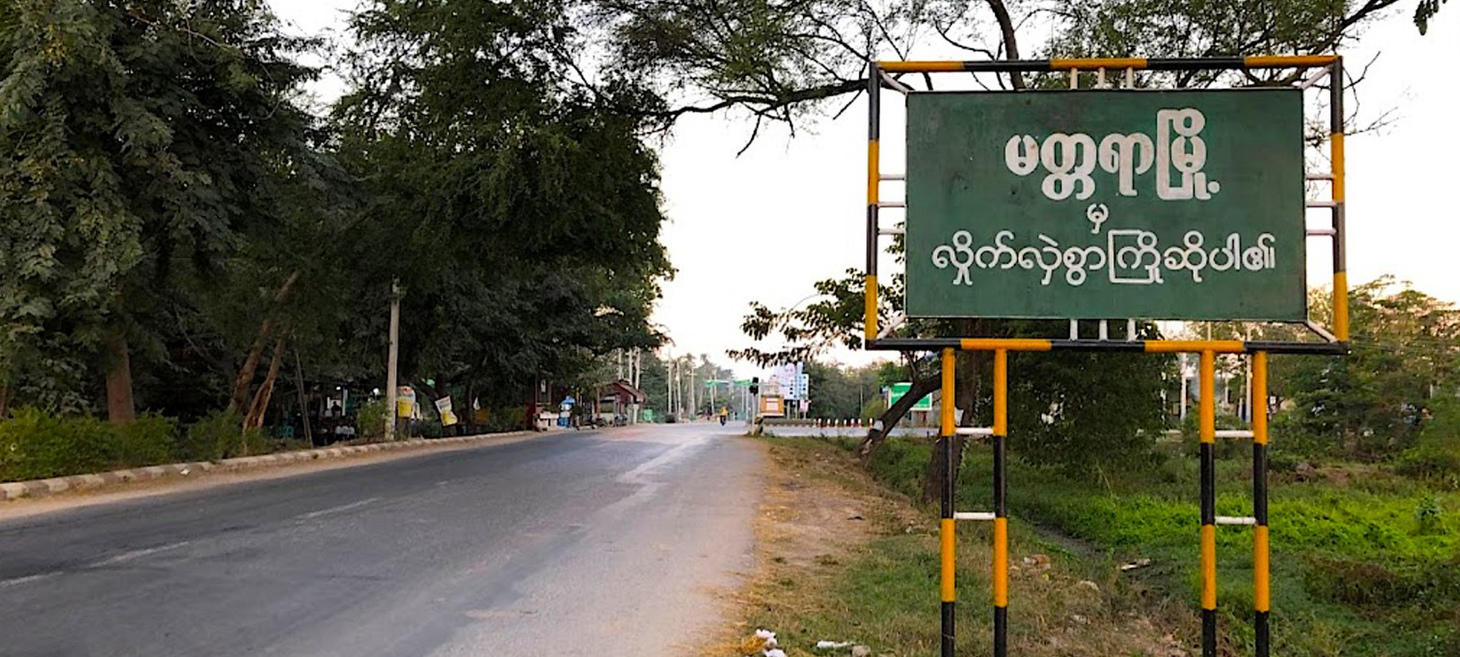
Civilians Stranded as Myanmar Junta Blockades Madaya
The Myanmar military junta has imposed a blockade on Madaya town in the Mandalay Region, resulting in the stranding of civilians amidst ongoing conflicts. This action follows the seizure of several junta outposts and a police station in Singu Township by the Mandalay People's Defence Force (PDF), prompting the regime to tighten its control over the area. The blockade has trapped vehicles carrying displaced individuals between Madaya and Singu towns, exacerbating the humanitarian situation as those affected face food and fuel shortages. Additionally, residents attempting to flee to Mandalay are being turned back at junta checkpoints, further isolating them within the conflict zone.
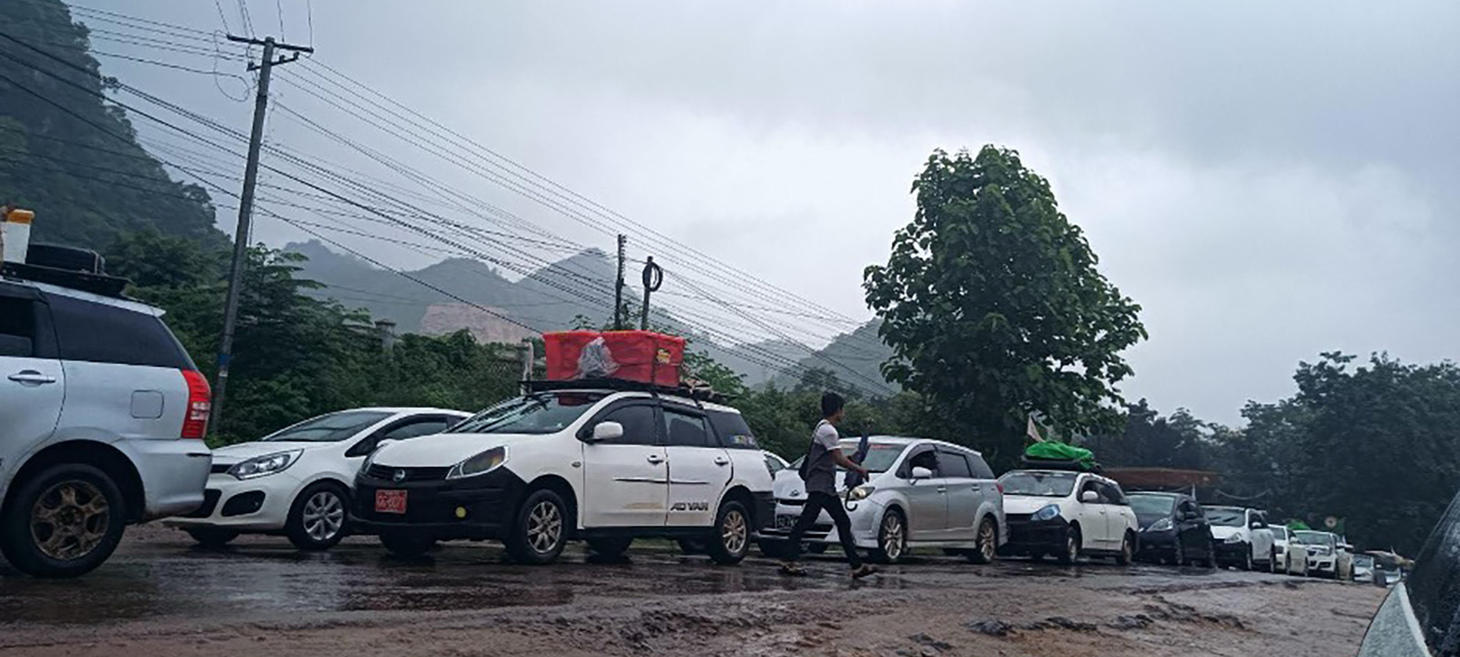
Civilians Flee as Noose Tightens on Myanmar Junta’s NE Command Headquarters
Civilians are fleeing as the situation intensifies around the junta's Northeastern Military Command headquarters. The area has seen increased violence, with reports of shells and bombs hitting residential areas, resulting in casualties among residents, including children. This escalation has led to a significant exodus of people from the city, seeking safety elsewhere. The fighting involves various ethnic armies, including the Myanmar National Democratic Alliance Army, Ta’ang National Liberation Army (TNLA), and Arkan Army, which have launched attacks on regime bases. Amidst these developments, the junta has been accused of using chemical weapons, exacerbating the humanitarian crisis.
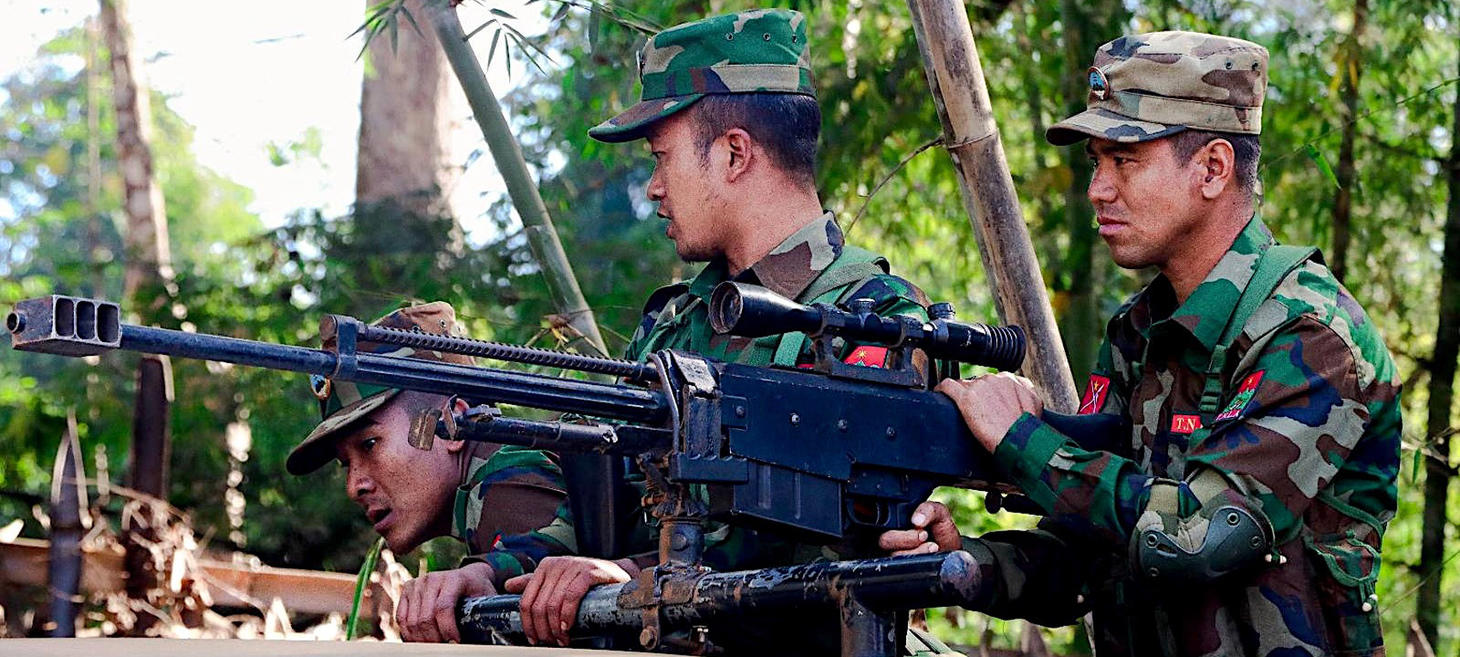
Brotherhood Alliance Targets Junta Command in Lashio
The Brotherhood Alliance, comprising the T'ang National Liberation Army (TNLA), Myanmar National Democratic Alliance Army (MNDAA), and others, has intensified its offensive against the Myanmar military junta, targeting command centers in Lashio. This escalation comes amidst reports of civilian displacement and restrictions on movement within the city. The alliance's actions have resulted in significant disruptions, including the closure of shops, suspension of flights due to "bad weather," and the deployment of junta troops across strategic locations. Additionally, the destruction of infrastructure, such as bridges, has further isolated Lashio, exacerbating the humanitarian situation.
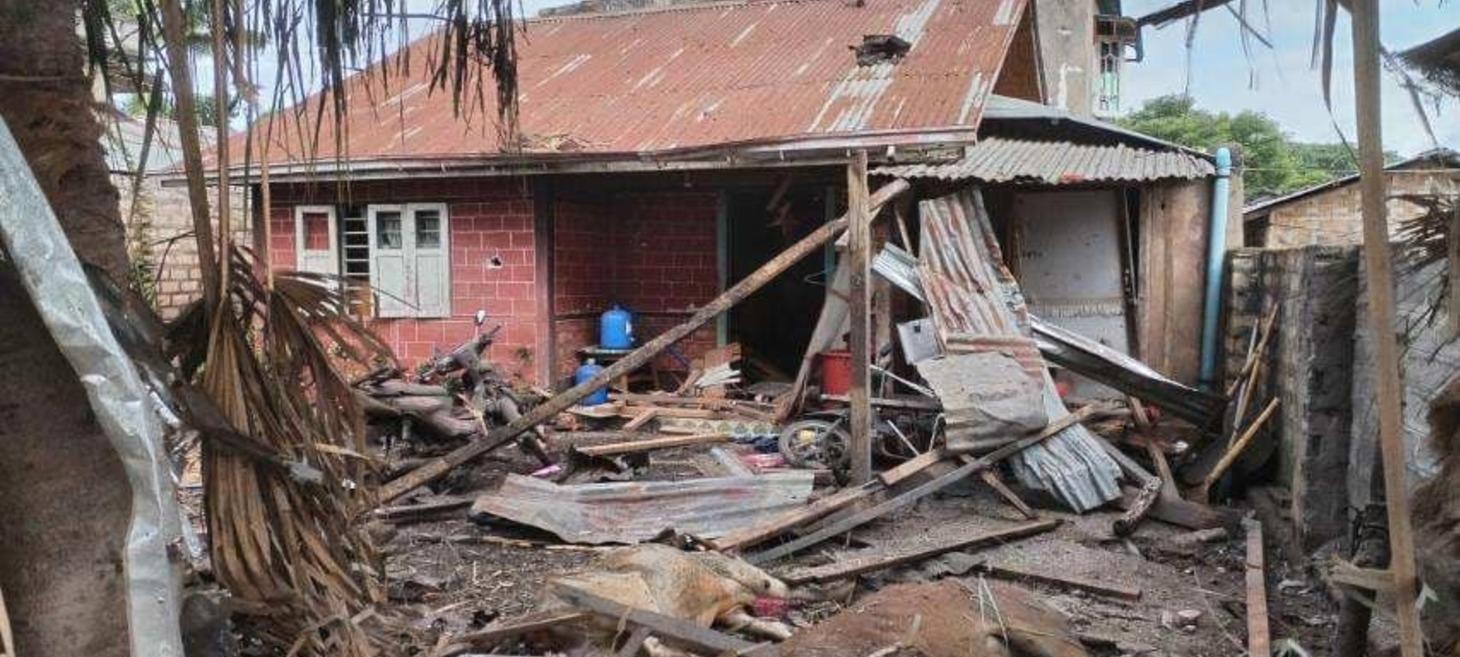
Three Brotherhood Alliance Deploys Drones to Bombard Junta Regional Headquarters in Lashio
On July 3, 2024, the Three Brotherhood Alliance conducted a drone bombing attack on the junta's Northeastern Regional Command Headquarters in Lashio Township, northern Shan State, in response to continuous artillery shelling by the junta. This operation coincided with the Alliance's successful engagement against the junta's 505th Light Infantry Battalion near Nawngmawn, leading to significant troop displacement. Amidst these conflicts, civilian casualties have escalated, with incidents such as a drone carrying a mortar shell crashing into a civilian home in Lashio, resulting in the tragic loss of six lives, including three children.
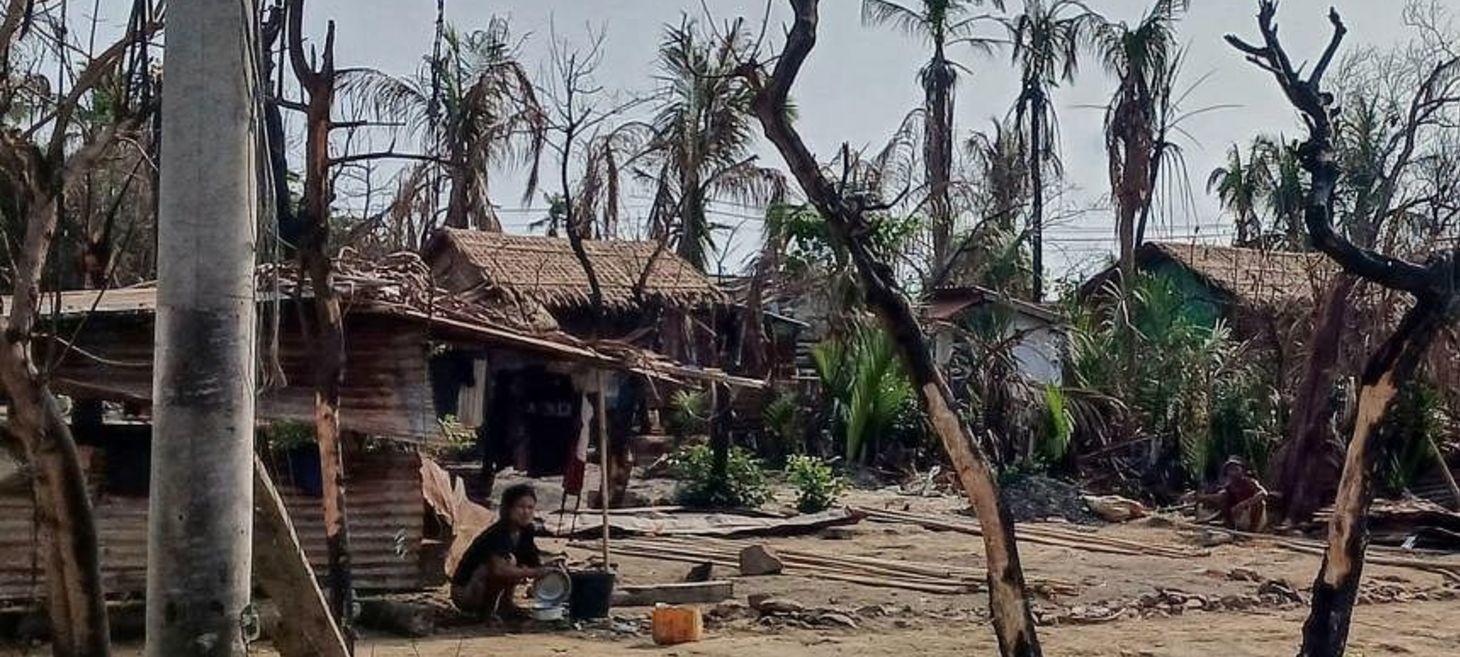
Ethnic fighters battling way into key north Myanmar town
In northern Myanmar, ethnic minority fighters from the Ta'ang National Liberation Army (TNLA) and allied groups are intensifying their assault on the strategic town of Lashio, which houses the junta's northeastern command. Clashes, which began on July 3, have resulted in significant civilian casualties, with at least 16 reported dead. Lashio, a critical juncture on the highway linking Mandalay to China's Yunnan province, has seen disruptions including canceled flights since the onset of fighting.
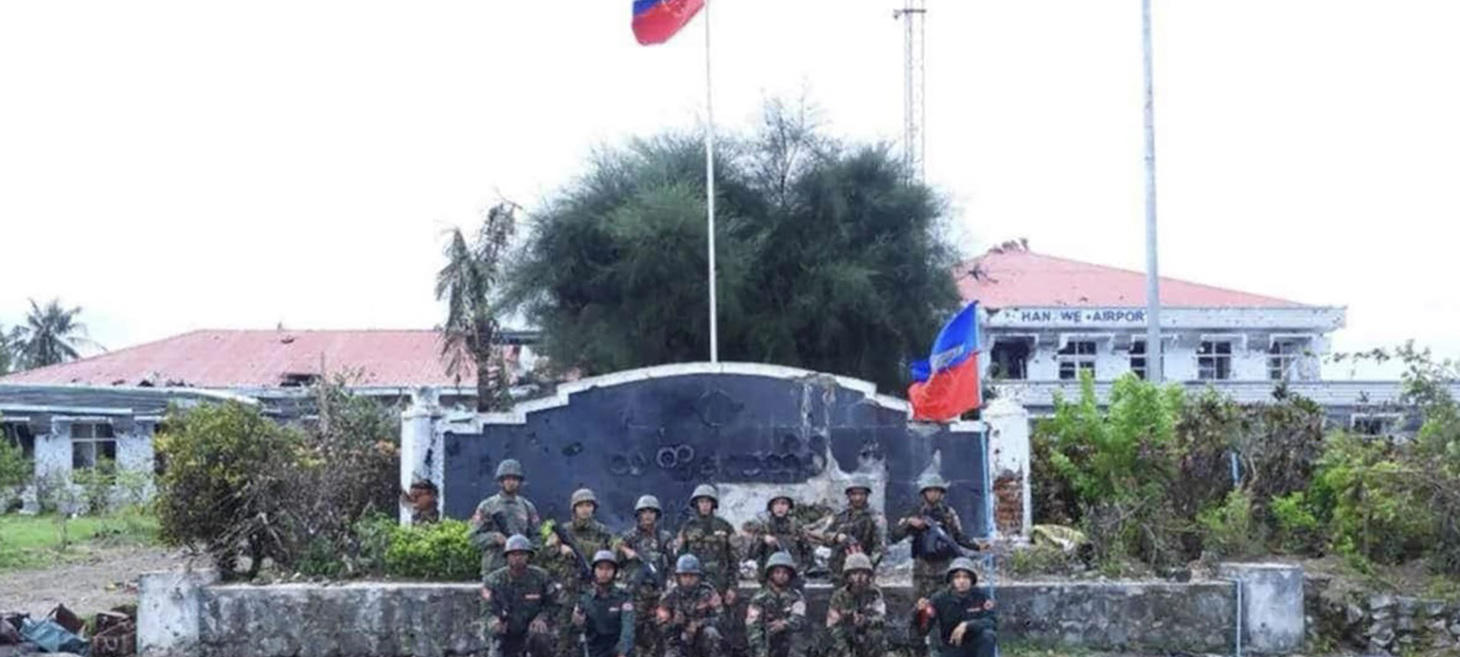
AA: Myanmar Junta Grip Weakens on Maungdaw and Thandwe
The Arakan Army (AA) has significantly weakened the grip of Myanmar's military junta in Maungdaw and Thandwe townships in Rakhine State, reporting over 750 junta personnel killed in these areas within three months. The AA launched an offensive in Thandwe, near Myanmar's popular Ngapali beach, on April 13, claiming to have seized over 15 infantry battalions and killed more than 400 junta troops while capturing substantial arms and ammunition. Despite ongoing resistance from the remaining junta forces in Thandwe, including aerial bombardments and naval shelling, the AA asserts control over 11 of Rakhine State's 17 townships, marking a significant shift in the balance of power in the region.
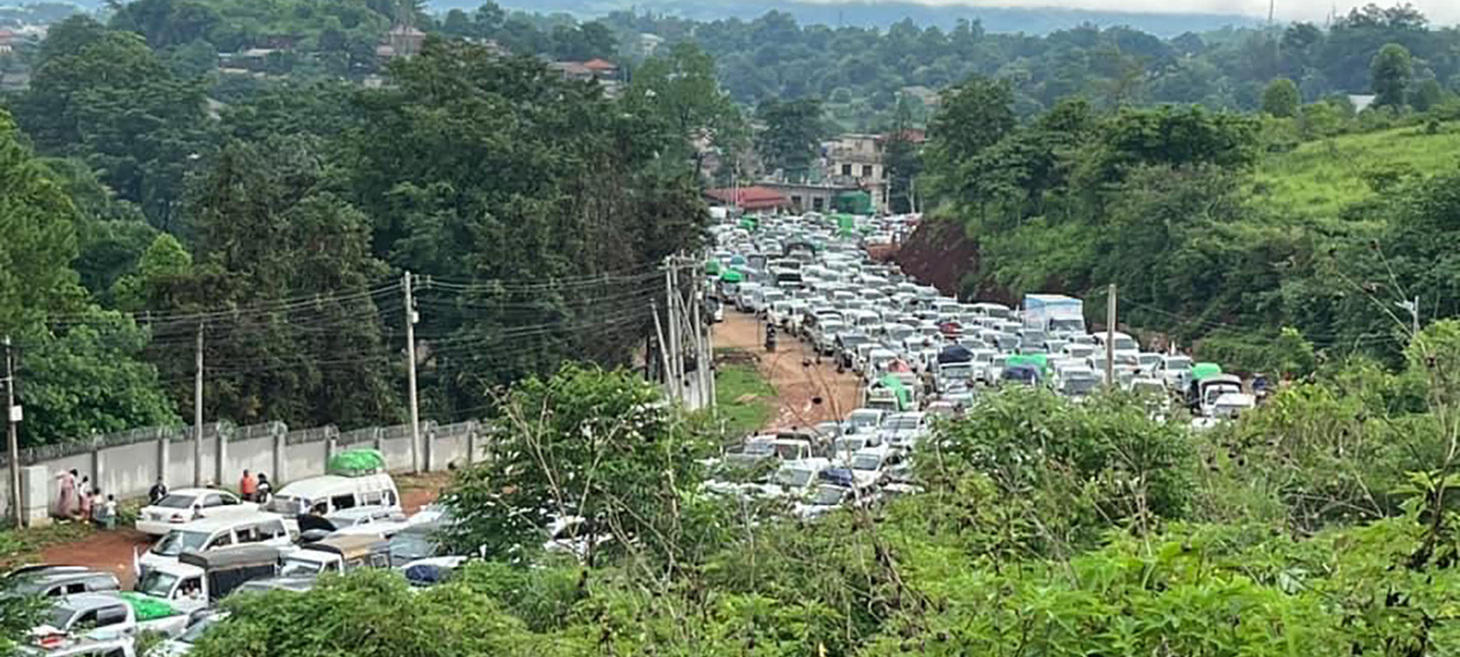
Tens of Thousands Flee as Myanmar Junta Buckles in Northern Shan Capital
In northern Shan State, Myanmar, tens of thousands of civilians have been forced to flee their homes due to escalating conflicts between the Myanmar junta and ethnic resistance forces. The situation intensified as the Myanmar National Democratic Alliance Army (MNDAA) and its allies launched attacks on junta bases, capturing strategic locations and causing the junta troops to buckle under pressure. This surge in violence has led to widespread displacement, with residents seeking refuge in neighboring townships and regions amidst ongoing airstrikes and artillery bombardments by the junta, targeting civilian areas and exacerbating the humanitarian crisis.
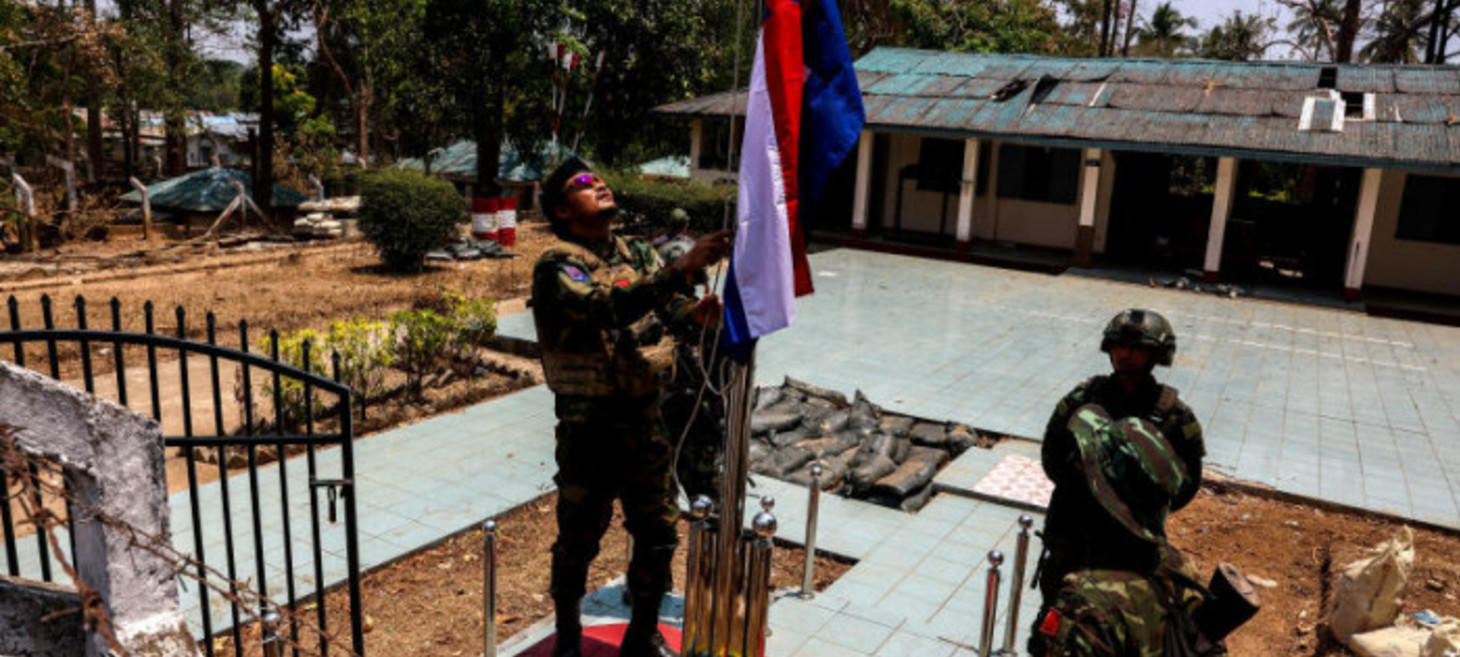
Myanmar junta risks losing gem, tourist hubs to armed groups
Myanmar's military regime faces the risk of losing key economic regions, including northeastern hubs and western coastal towns, as resistance forces gain ground following the collapse of a China-mediated ceasefire. The Arakan Army in Rakhine state has made significant advances, capturing the strategic seaport town of Thandwe and claiming over 400 junta casualties. Meanwhile, the Ta’ang National Liberation Army and other groups are actively contesting control of key towns in northern Shan state, such as Lashio and Mogok, known for their valuable gemstone resources. These developments come amidst ongoing discussions between the junta's deputy chief and Chinese officials in Qingdao, highlighting China's significant but challenged role in stabilizing the region.
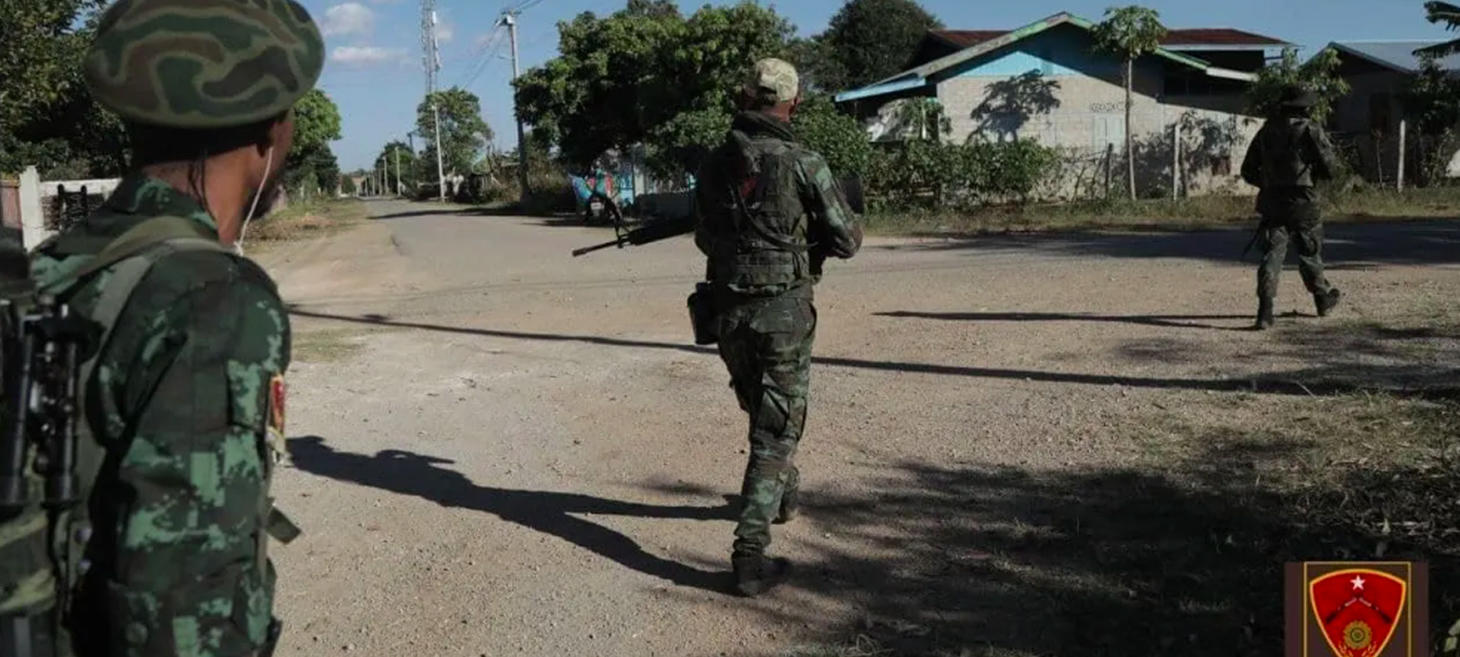
Fighting Resumes in Myanmar’s Loikaw as Karenni Resistance Forces Return
In Loikaw, the capital of Kayah State, intense fighting has resumed as Karenni resistance forces, comprising the Karenni Army (KA) and Karenni Nationalities Defense Force (KNDF), counterattack junta troops in strategic urban areas. The conflict escalated after the resistance was initially pushed out of key wards near Loikaw University due to being outnumbered. Recent clashes have resulted in civilian casualties, including a child, with residents fleeing the violence that has seen junta forces using heavy artillery. Despite temporary withdrawals due to ammunition shortages, the resistance remains active, having previously seized significant portions of the city in Operation 1111. The junta, attempting to regain control, has reinstated some municipal services and urged residents to return, signaling a strategic interest in reopening Loikaw University and stabilizing the region under its governance.
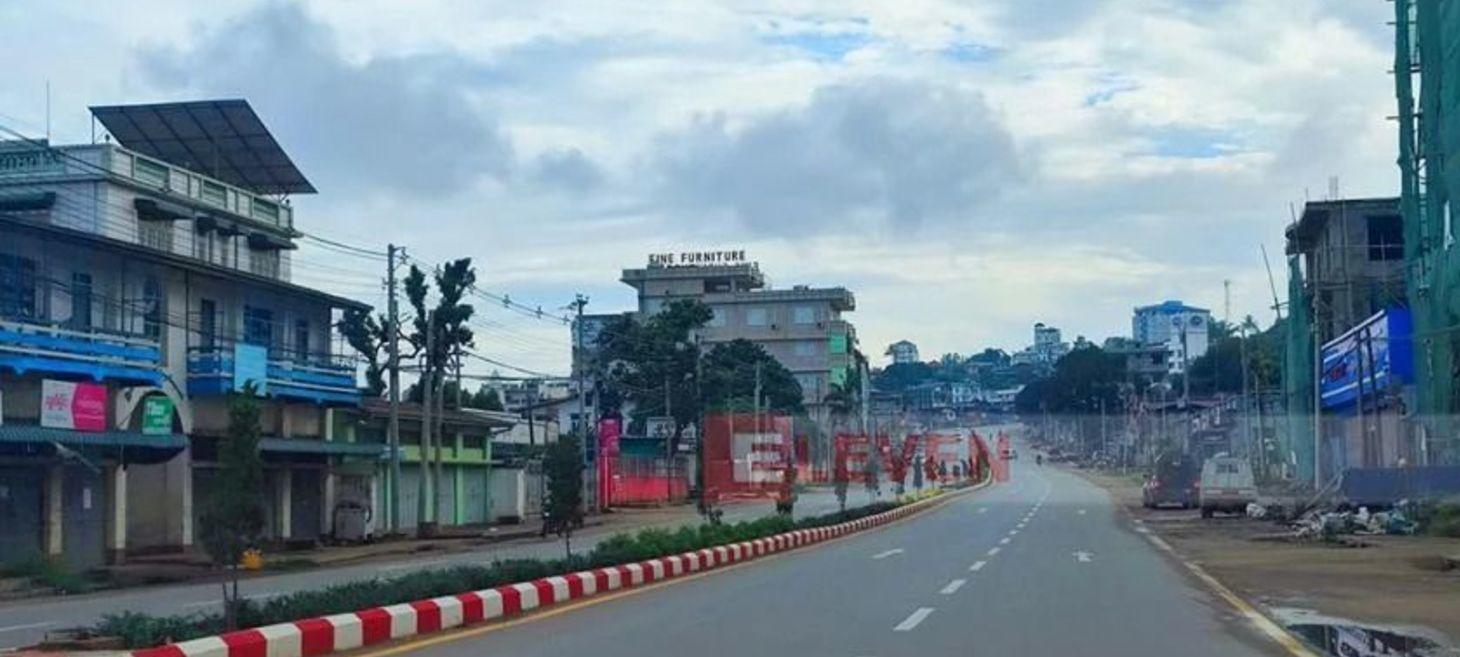
Ongoing conflict near Lashio, Shan State
In Lashio, Myanmar, ongoing clashes between the Tatmadaw and the Myanmar National Democratic Alliance Army (MNDAA) have intensified, with artillery and gunfire nearing the city over the past three days. The conflict has led to the temporary capture and recapture of military positions, including the No.507 battalion. Residents report a decrease in homemade rocket attacks that had been frequent and deadly in previous days. The city is experiencing a significant exodus, with many using white flags on vehicles as they flee to safer areas. Compounding the turmoil, Lashio has been grappling with a power outage and disrupted phone services for nearly ten days, affecting communication and daily life.
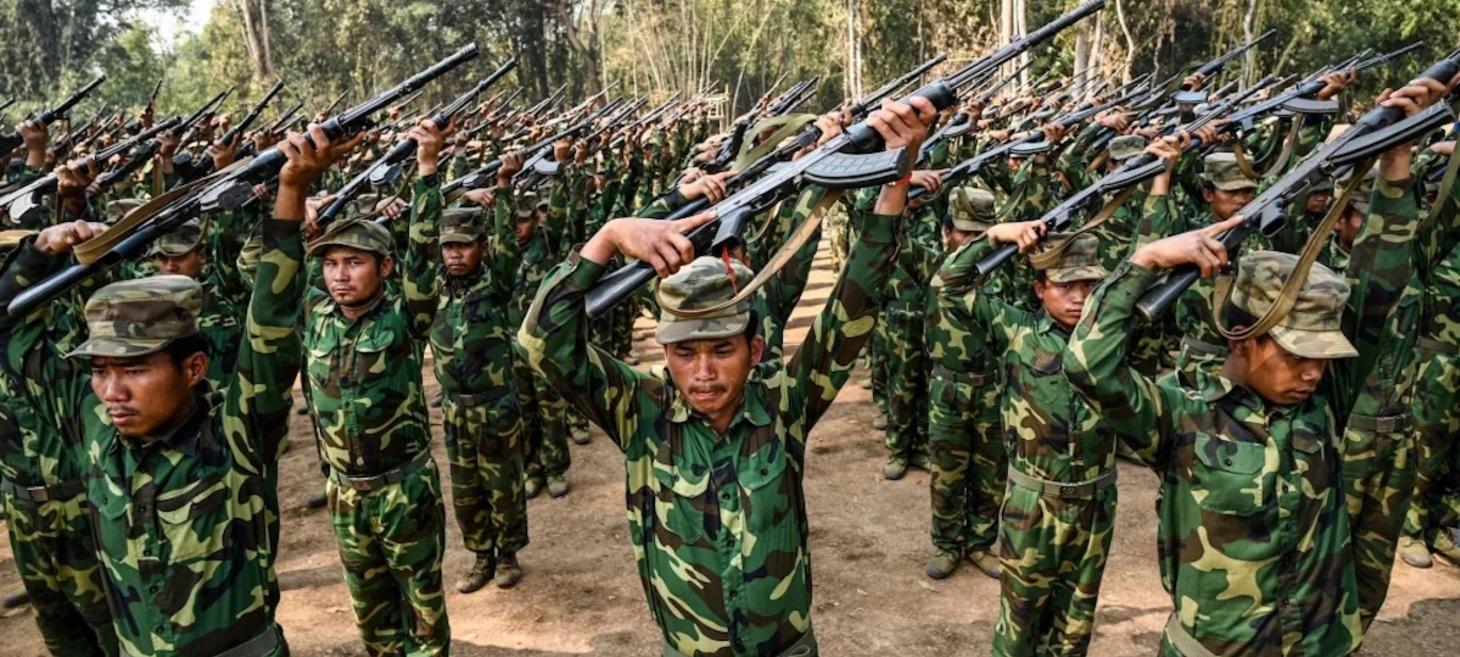
The road to a resistance victory in Myanmar
In Myanmar, the military junta, facing defeats by ethnic insurgent groups, is retreating to major urban centers, adopting a defensive "porcupine strategy" characterized by reliance on air power, artillery, and ammunition. This shift is evident from Myitkyina in the north to Sittwe in the west, as the military consolidates its forces in cities to leverage its superior firepower against less equipped insurgent forces. This strategy not only serves a military purpose but also supports the junta's political aim to control populous areas and stage elections as a way out of the crisis. Diplomatically, it hopes that even a flawed electoral process will gain enough international legitimacy to maintain its power. This urban-centric defensive posture is seen as a temporary solution to withstand the nationwide advance of resistance forces and sustain the military's central role in governance.
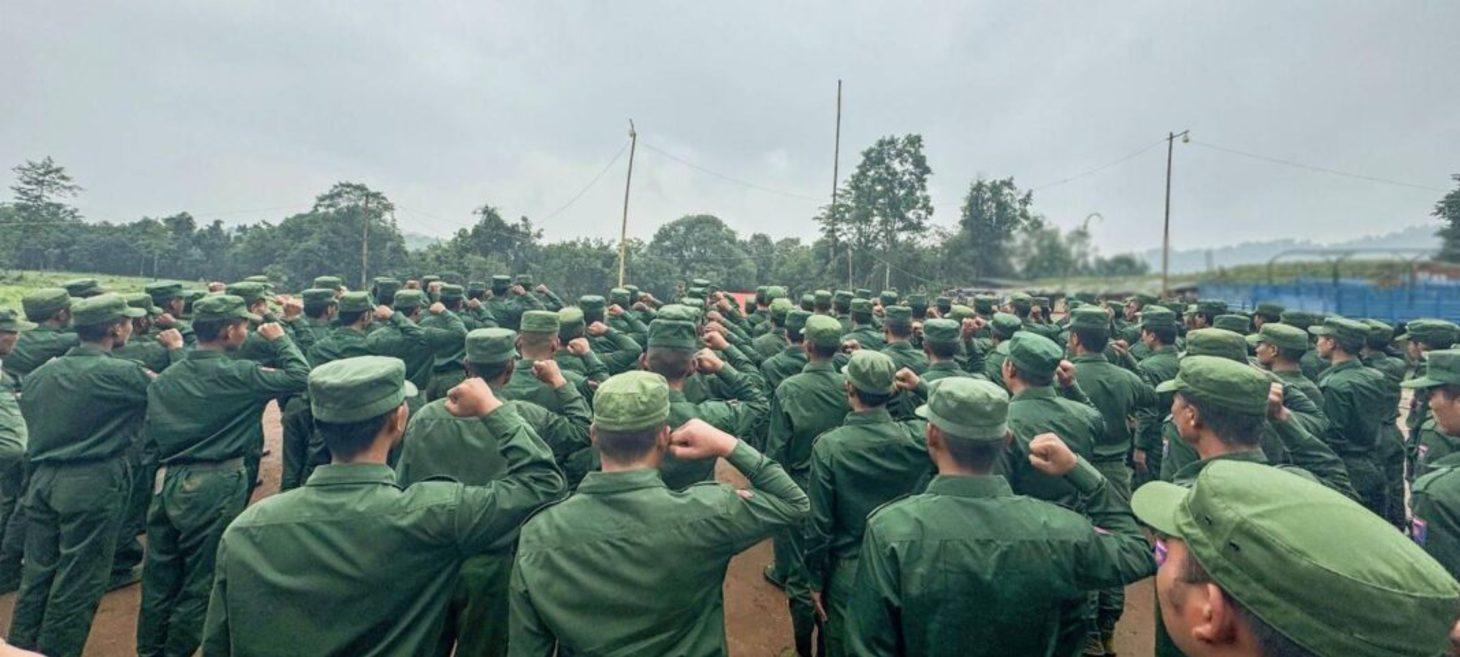
Clashes Break Out Between Junta and MNDAA in Mongyai, Shan State
In Shan State's Mongyai Township, clashes broke out between the Myanmar National Democratic Alliance Army (MNDAA) and junta forces stationed near Hoya Village Tract on July 7, continuing until evening with indiscriminate artillery fire damaging homes. Intense fighting saw junta soldiers firing on villages, resulting in property damage and displacement. On July 8, a drone attack by MNDAA on the junta camp halted artillery fire, possibly neutralizing the junta presence on Loihotone Hill. Amidst escalating tensions, the junta's Mantan base began shelling Lashio Town, and reinforcements were mobilized to Mongyai. Approximately 800 residents from affected villages have fled to safer locations following the violence and preceding arbitrary shelling incidents by the 67th Infantry Battalion on July 4, which targeted civilian infrastructure.
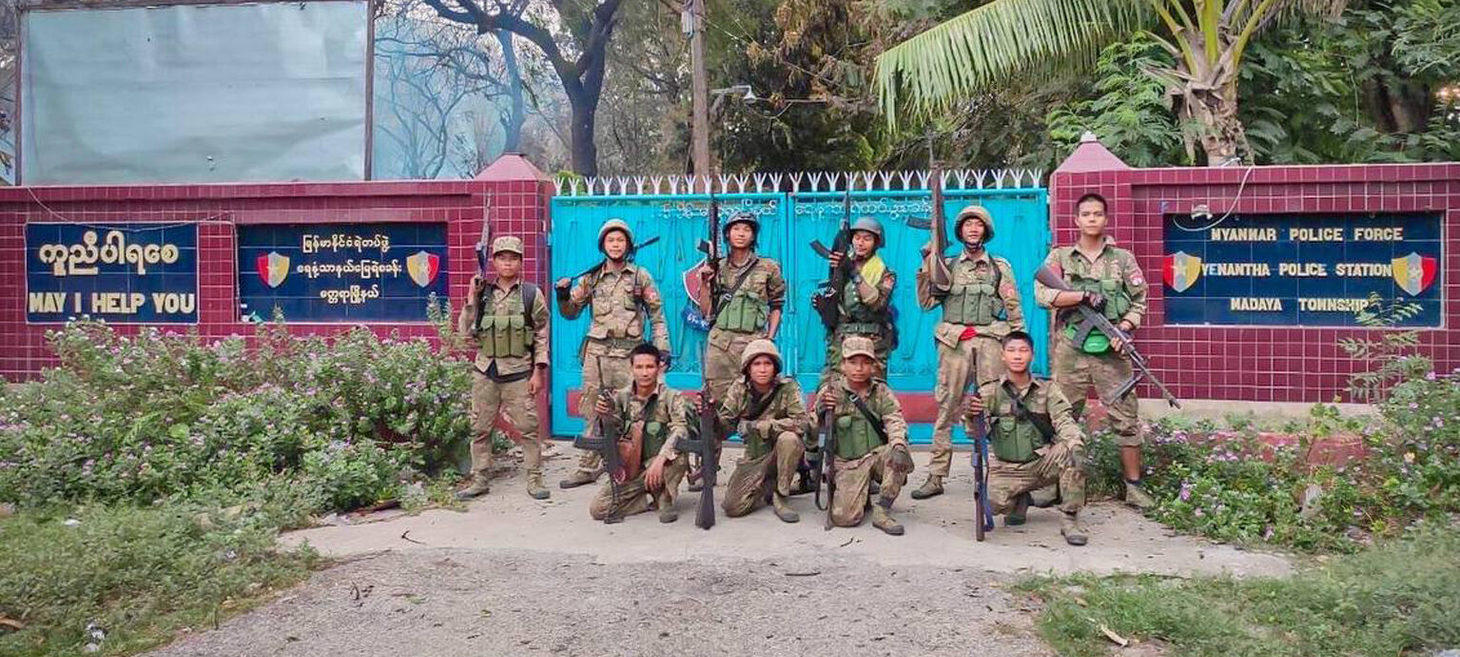
Myanmar Junta Rushing to Hold Upper Mandalay as Resistance Moves South
Intense fighting occurred on Monday in villages surrounding Madaya, a strategic town in upper Mandalay Region, as resistance groups executed coordinated assaults on regime targets. This escalation marks an expansion of Operation 1027, initially launched in northern Shan State, towards Mandalay's Mogoke Township. Madaya, crucial for protecting Mandalay from northern attacks, saw significant clashes, including at Htee Taw Moe village to the north and junta checkpoints in North and South Tangar to the south. Amidst the conflict, approximately 100 regime soldiers and allied militias reinforced these areas, leading to civilian displacement and restrictions on movement. The Mandalay PDF claimed victories over 11 junta positions, including police stations in rural Madaya and Singu townships. Despite the regime's efforts to fortify Madaya, including the deployment of artillery and reinforcements, the majority of the town's residents have fled, leaving behind a largely deserted area under heavy military presence.
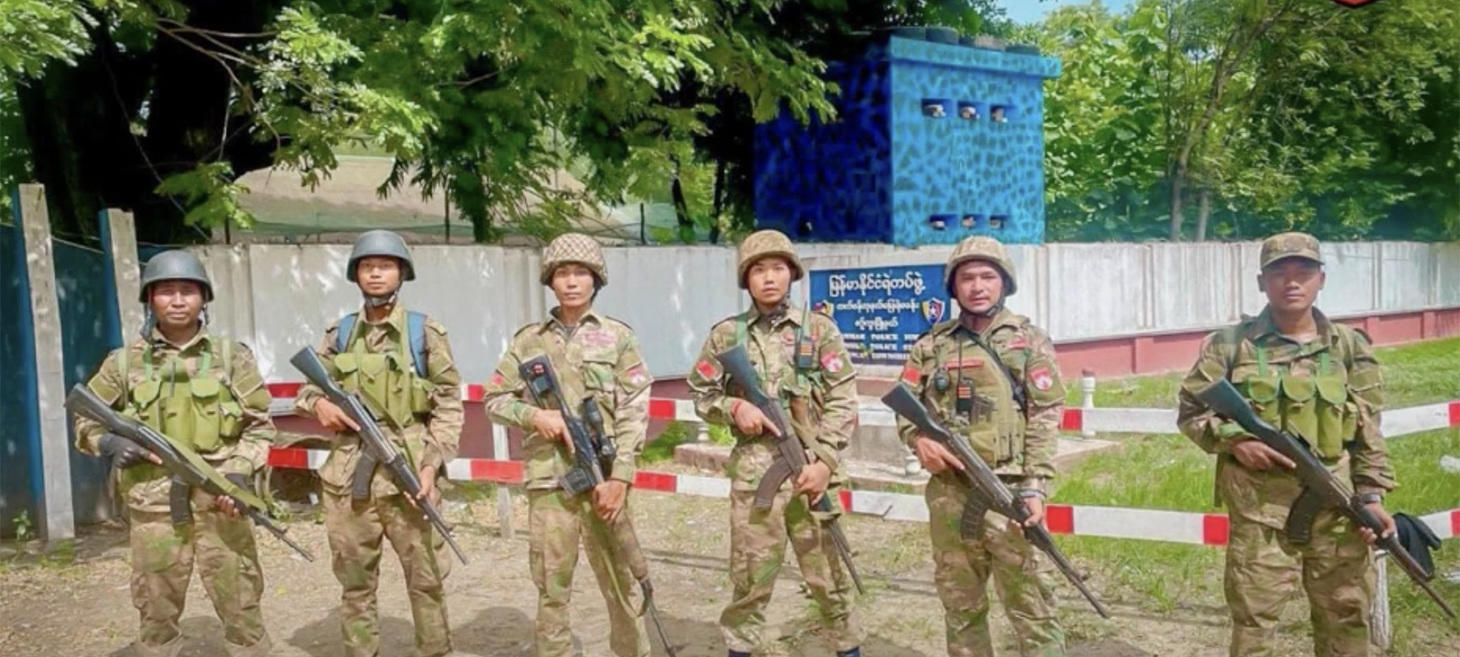
Mandalay PDF: 11 Myanmar Junta Bases Seized
Starting on June 30, the Ta'ang National Liberation Army (TNLA) alongside its People's Defense Force (PDF) allies initiated attacks in Singu, resulting in the capture of several bases and a police station by July 5. Notably, Lieutenant Colonel Hlaing Htun Aung among others were detained, and there were reports of pro-regime militias surrendering. Earlier seizures included bases and a police station in Singu Township, with significant quantities of arms and ammunition taken from these locations. The operation's significance lies in gaining control over the Mandalay-Mogoke road, highlighting the strategic importance of the area. Concurrently, the PDF has been active in Madaya Township since June 25, claiming the fall of 25 junta positions, and engaging in offensives across various townships including Pyin Oo Lwin, Mogoke, Patheingyi, Amarapura, and Thabeikkyin. Additionally, the PDF is participating in TNLA offensives in northern Shan State, emphasizing its broad involvement in the ongoing conflicts.
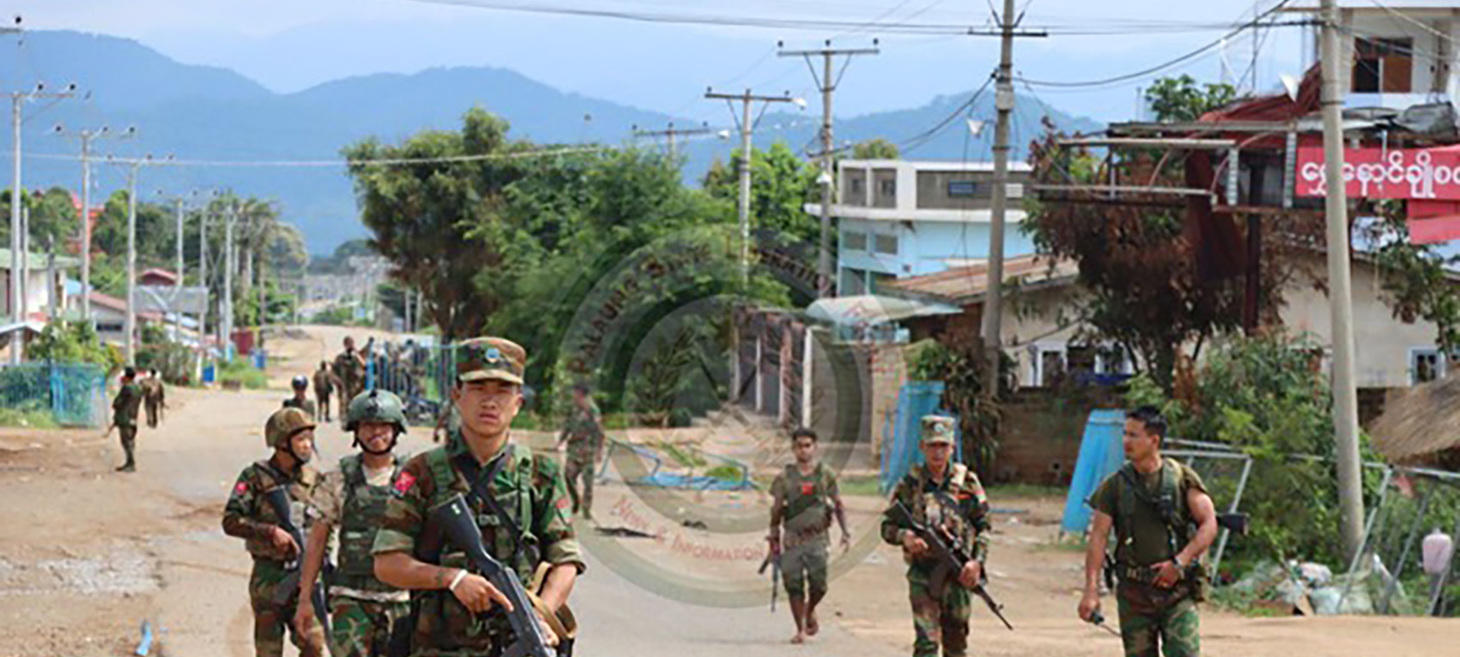
TNLA: Four Myanmar Junta Bases Seized in One Day
On July 10, 2024, the Ta'ang National Liberation Army (TNLA) announced the capture of four additional Myanmar junta bases located in northern Shan State and Mandalay Region. These bases include Thayet Taw and Six-Mile in Mongmit Township, Shan State, and Yaw Muu and Five-Mile in Mogoke Township, Mandalay Region. Concurrently, intense fighting was reported near Thae Khaw village in Nawnghkio Township, involving multiple rocket launchers and drone strikes by the junta. Despite these engagements, the TNLA, alongside the Mandalay People's Defense Force, claimed significant territorial gains, including around 40 junta bases and substantial portions of several towns. Amidst the ongoing conflict, civilian casualties continue to mount, with recent airstrikes resulting in the death of an 11-year-old and injuries to two others, highlighting the escalating humanitarian crisis in the region.
Conscription
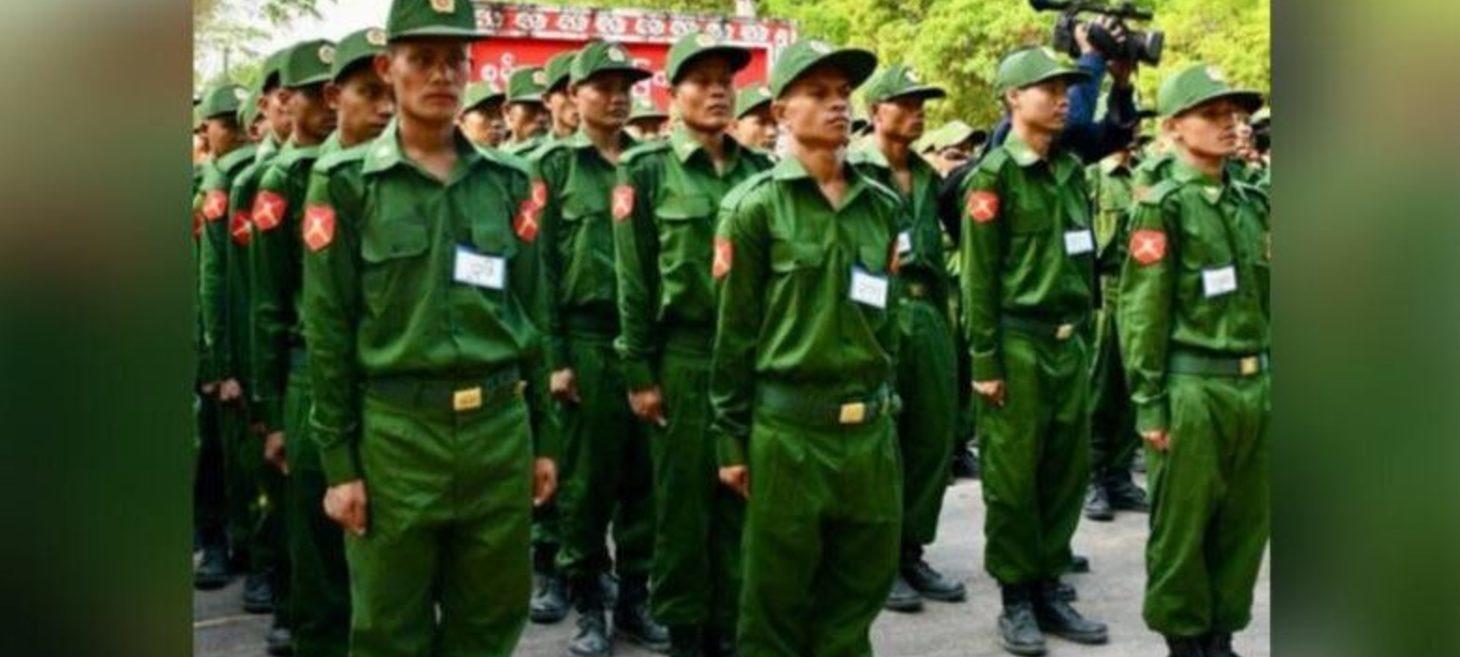
Junta Dispatches First Conscripts to Kawkareik to Deploy for ‘Operation Aung Zay Ya’
Under the junta's newly enacted conscription law, the first group of conscripts has finished their military training and is being sent to Kyondoe and Kawkareik through Hpa-An, beginning July 1, to participate in 'Operation Aung Zay Ya.' Escorted by the Democratic Karen Benevolent Army (DKBA-5), these new recruits are set to engage in various capacities in this operation, marking their inaugural deployment. The junta has intensified its efforts in the region, with reinforcements and increased artillery shelling reported in combat zones like Kyondoe, Nabu, and Kawkareik. Daily confrontations between the junta forces and the resistance coalition, notably the Karen National Liberation Army (KNLA), have escalated, alongside more frequent air raids by the junta. Despite the rainy season, military activities are expected to persist, with indications of continued combat. Additionally, certain Karen armed groups, previously having ceasefire agreements with the junta, are aiding in the movement of junta troops, while some junta soldiers disguise themselves as civilians to gather intelligence on the KNLA and its allies in Kawkareik and Kyondoe.
Crime & Narcotics
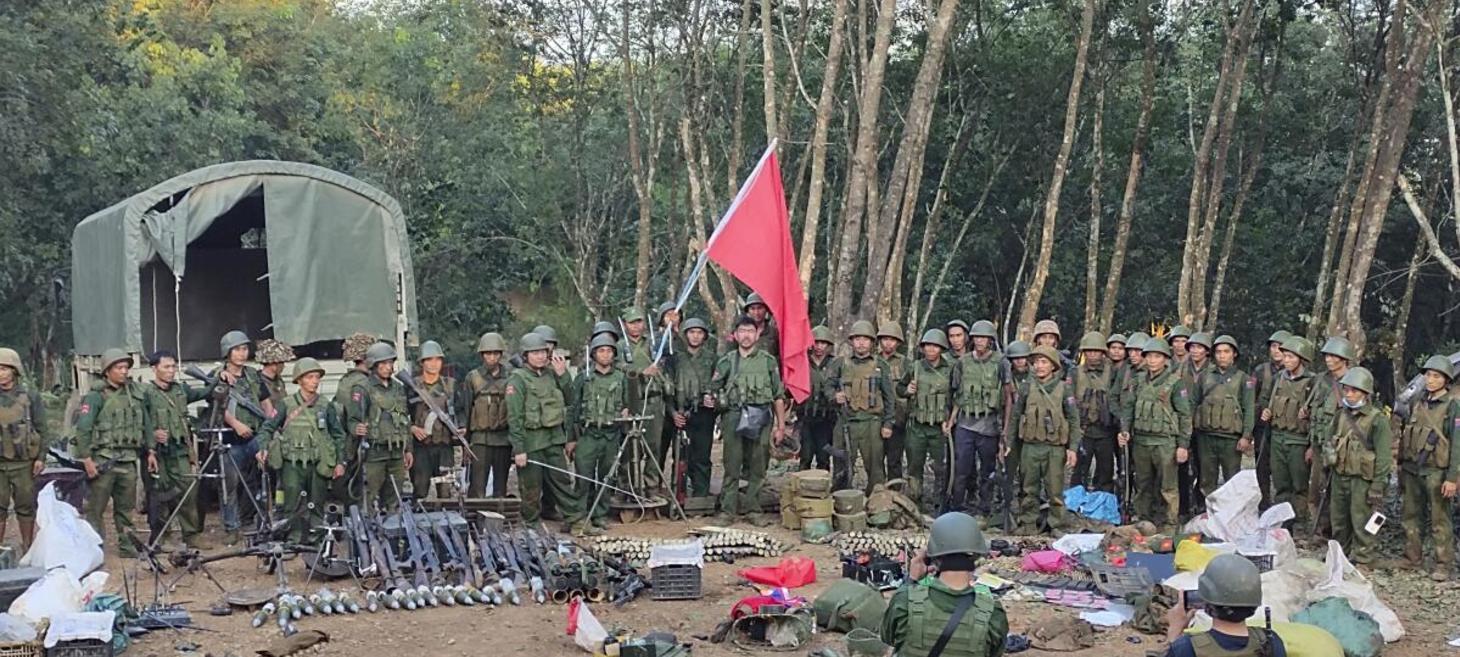
Rise of armed groups, crime syndicates in Myanmar highly dangerous for Bharat: Indian envoy to Thailand Nagesh Singh
The rise of armed groups and crime syndicates in Myanmar poses a significant threat to India, as highlighted by Indian Envoy to Thailand Nagesh Singh. This situation is particularly concerning due to Myanmar's shared border with India, raising fears of potential spillover effects such as increased smuggling, drug trafficking, and the possibility of these groups providing sanctuary to insurgents operating within India. The envoy emphasized the importance of international cooperation in addressing this issue, underscoring the need for collective efforts to ensure regional stability and security.
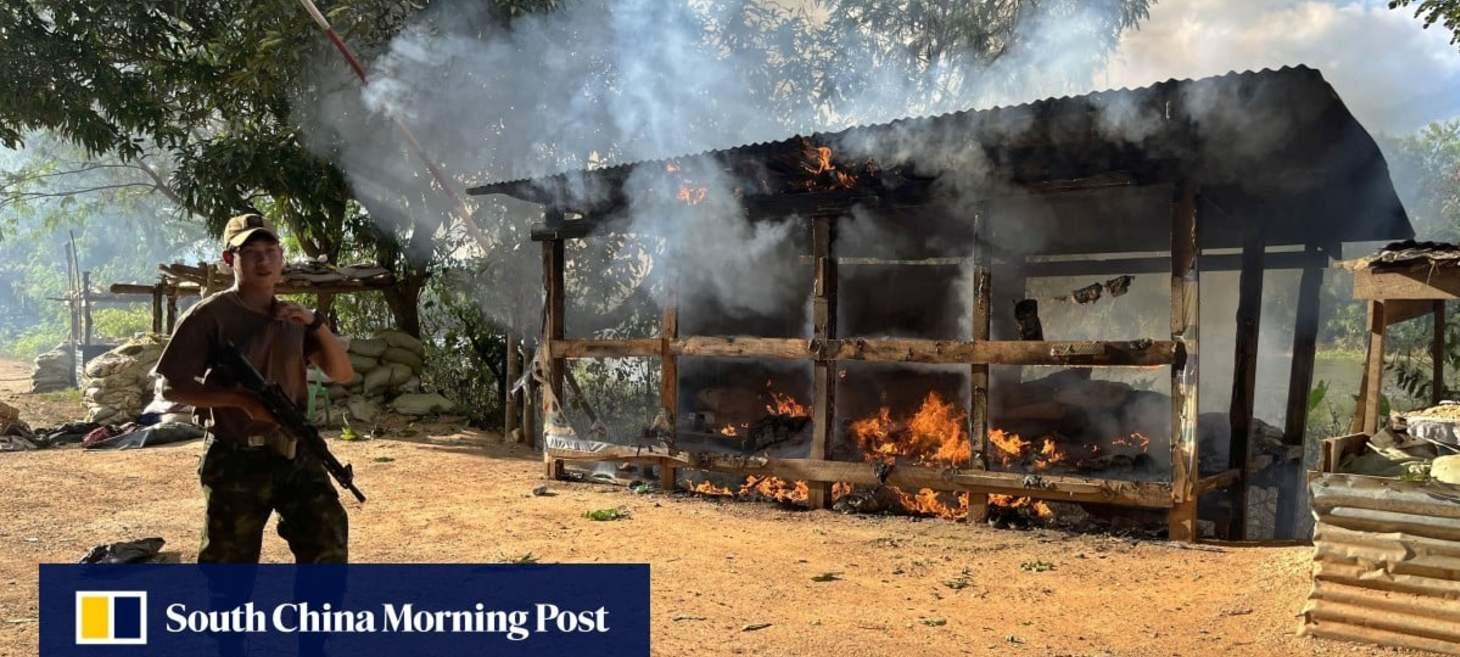
Myanmar’s ‘fight to the death’: junta and its criminal warlords vs everyone else
Myanmar is embroiled in a severe conflict described as a "fight to the death" between the military junta, its allied warlords, and various opposition groups, including ethnic armies and civilian fighters. The conflict, which has escalated since the military coup, is driven by deep-seated ethnic divisions and the military's brutal crackdown on protesters, leading to significant civilian casualties and displacement. The situation is further complicated by the involvement of criminal activities that financially benefit the junta, creating a complex crisis with regional implications due to Myanmar's strategic position between major powers. This ongoing turmoil represents the most intense conflict in the region in decades, posing a substantial threat to both national and regional stability.
Economy

All that glitters: Gold market freezes amid junta crackdown
Myanmar's gold market has been severely impacted by the junta's crackdown, leading to a freeze in domestic trading and a surge in smuggling to foreign markets, particularly India. The regime's heavy-handed attempts to stabilize soaring gold prices through arrests and strict price controls have disrupted the market, forcing traders to either close shop or sell gold illegally abroad. Despite efforts by the Yangon Region Gold Entrepreneurs Association (YGEA) to portray a functioning domestic market, the reality is marked by long lines at shops selling limited amounts of pure gold and the exploitation of loopholes through the sale of impure gold accessories. The crackdown has exacerbated the gap between official and market prices, incentivizing a black market and causing significant distress among traders and brokers, many of whom face arrest or are forced to cease operations.
Junta plunges Myanmar into economic turmoil
The Myanmar junta's actions have led to severe economic decline, exacerbating the humanitarian crisis and deepening poverty among the populace. Erratic policies, coupled with the military's violent suppression of dissent, have disrupted the economy, leading to hyperinflation, currency depreciation, and soaring living costs. The junta's attempts to control commodity prices, including imposing price ceilings on rice and cracking down on gold merchants, have further destabilized the market, leading to arrests and closures of businesses. Facing a foreign currency shortage, the junta has also targeted "hundi" cash transfer services and enforced mandatory remittances from migrant workers at unfavorable exchange rates. These measures, criticized by organizations like Progressive Voice and the World Bank, highlight the junta's failure to address economic challenges, instead worsening the situation for ordinary citizens. The impact is felt most acutely by the lower-income population, with rising food prices and stagnant wages making survival increasingly difficult. Amidst this economic turmoil, the junta continues to prioritize funding its military operations over alleviating the suffering of its people, prompting calls from Progressive Voice for international intervention to support the Myanmar people's struggle for democracy and economic recovery.
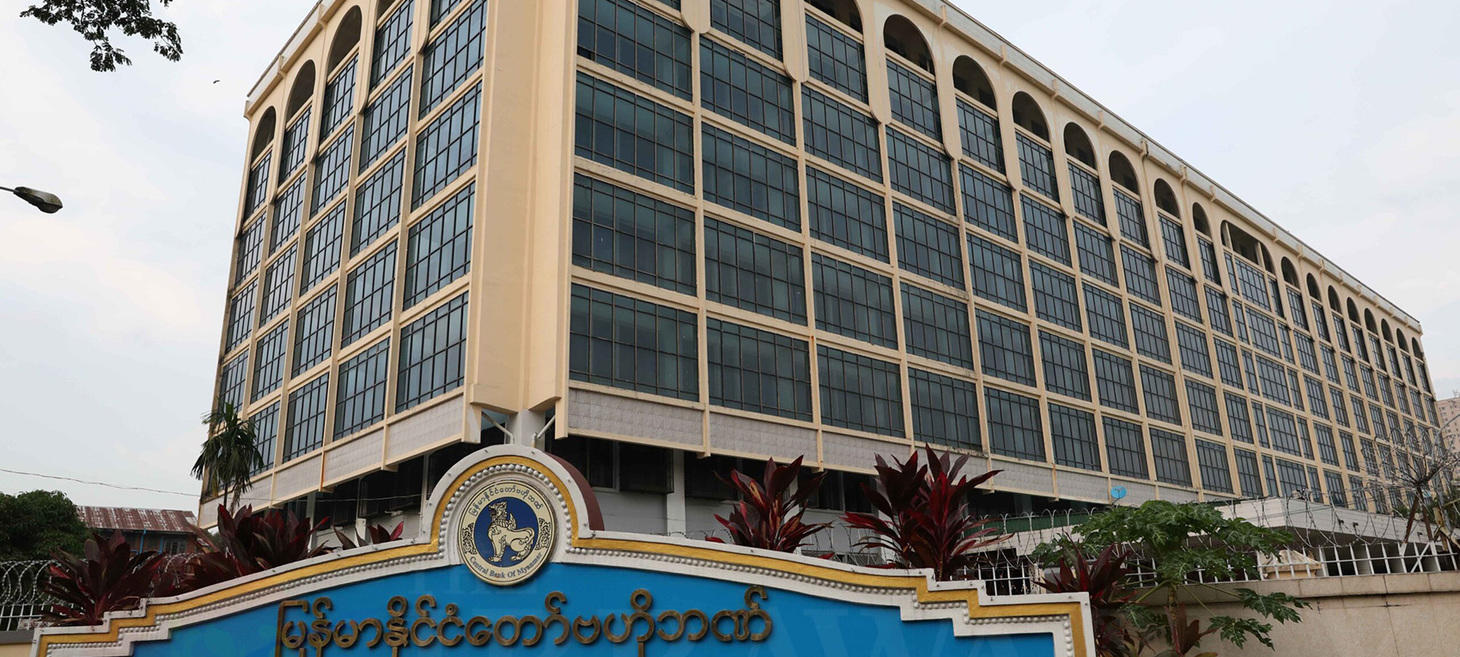
Bankers in Myanmar Summoned to Meeting With Junta as Financial Woes Deepen
In a move that has raised eyebrows within Myanmar's financial community, the junta has called for a confidential meeting with the leaders and chairpersons of all private banks in the country at Naypyitaw, the nation's capital, to address unspecified "banking issues." This gathering, set for July 10, involves top figures from the junta-controlled Central Bank of Myanmar and the State Administration Council, including Lieutenant Generals Aung Lin Dwe and Ye Win Oo, as well as Minister for Home Affairs Lt-Gen Yar Pyae. Despite efforts to keep the meeting under wraps, news of it has leaked onto social media, stirring speculation among banking insiders. The junta's recent actions against private banks, including threats of administrative penalties for exceeding loan limits and accusations of disloyalty amidst the country's economic turmoil, suggest that the meeting may address the tightening of financial regulations and the ongoing currency crisis.
Education
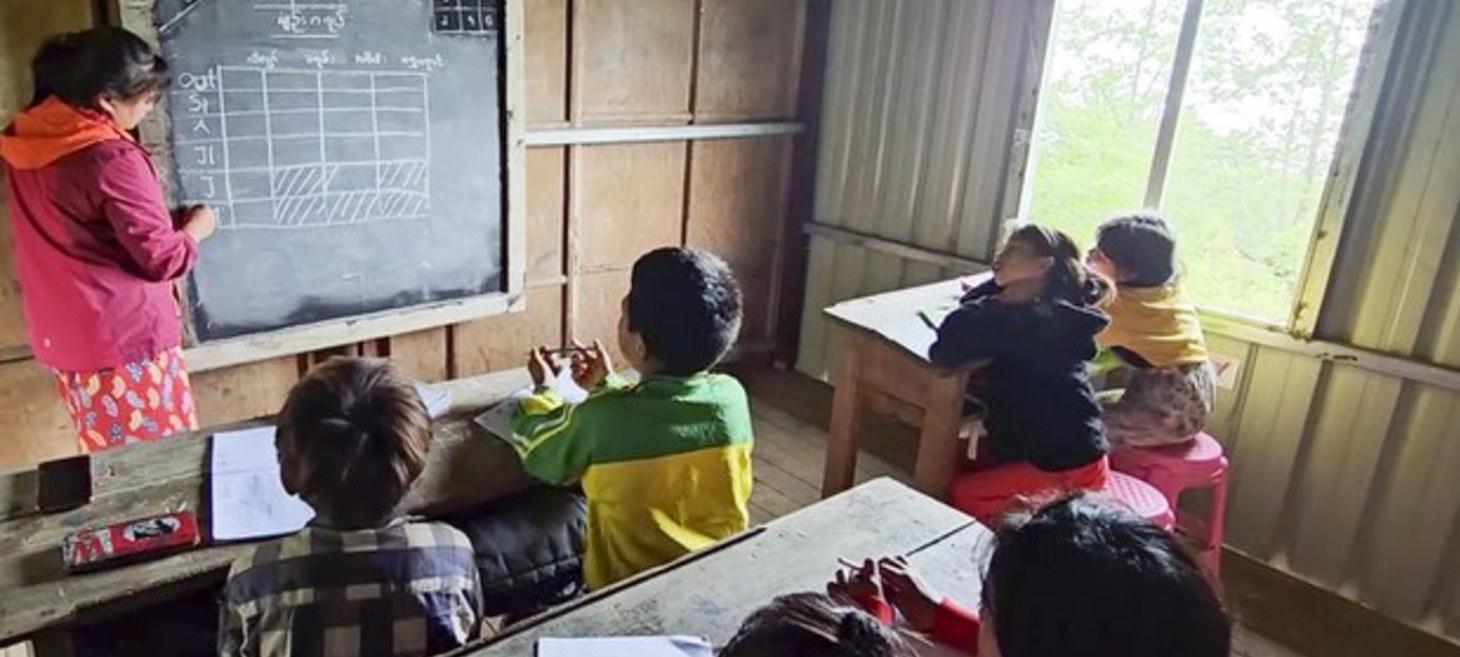
Some 13,700 schools in Myanmar are closed due to civil war
Myanmar's civil war has led to the closure of over 13,700 public schools, affecting education significantly across various regions, particularly in Chin and Sagaing, where intense fighting has occurred since the 2021 military coup. While most schools in Yangon and Ayeyarwady remain operational, the conflict has severely disrupted educational services in conflict zones, with only a fraction of schools remaining open in the hardest-hit areas. The National Unity Government (NUG), established by pro-democracy forces, has attempted to counteract this by opening over 4,300 schools in insurgent-controlled territories. However, these schools, too, face threats from junta airstrikes, further jeopardizing children's education and future prospects in the country.
Ethnic Issues
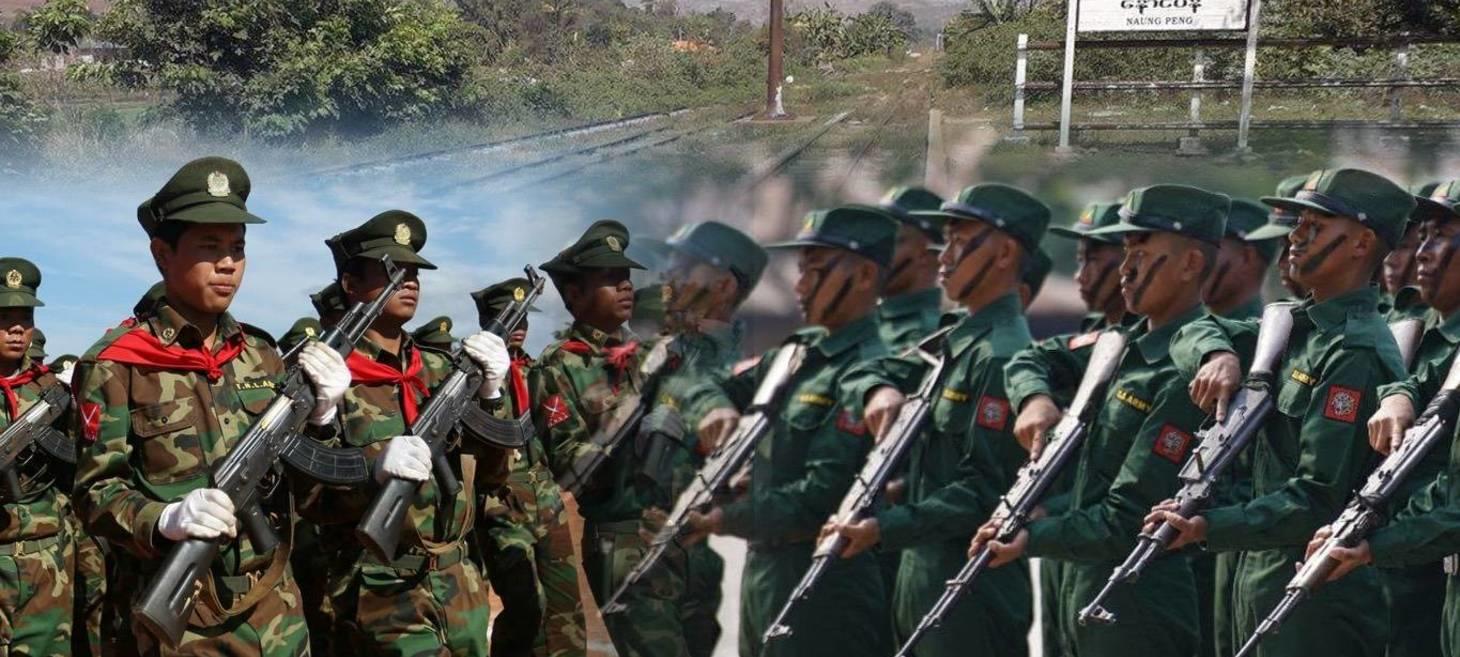
TNLA Attacks SSPP Camp in Kyaukme, Shan State
The Ta'ang National Liberation Army (TNLA) has escalated its conflict with the Shan State Progress Party/Shan State Army (SSPP/SSA) in Shan State, Myanmar, leading to increased military tensions and violence in the region. Since late June, the TNLA has intensified its military actions, including taking control of local infrastructure and forcing SSPP camps to relocate, which culminated in a shootout on July 5. This conflict has also involved clashes with junta forces, particularly in the northern towns of Lashio and Hsipaw, causing significant civilian displacement. The ongoing disputes over camp deployments and territorial control have disrupted local governance and heightened insecurity, with neither side showing a willingness to engage in dialogue or ceasefire negotiations.
Foreign Affairs
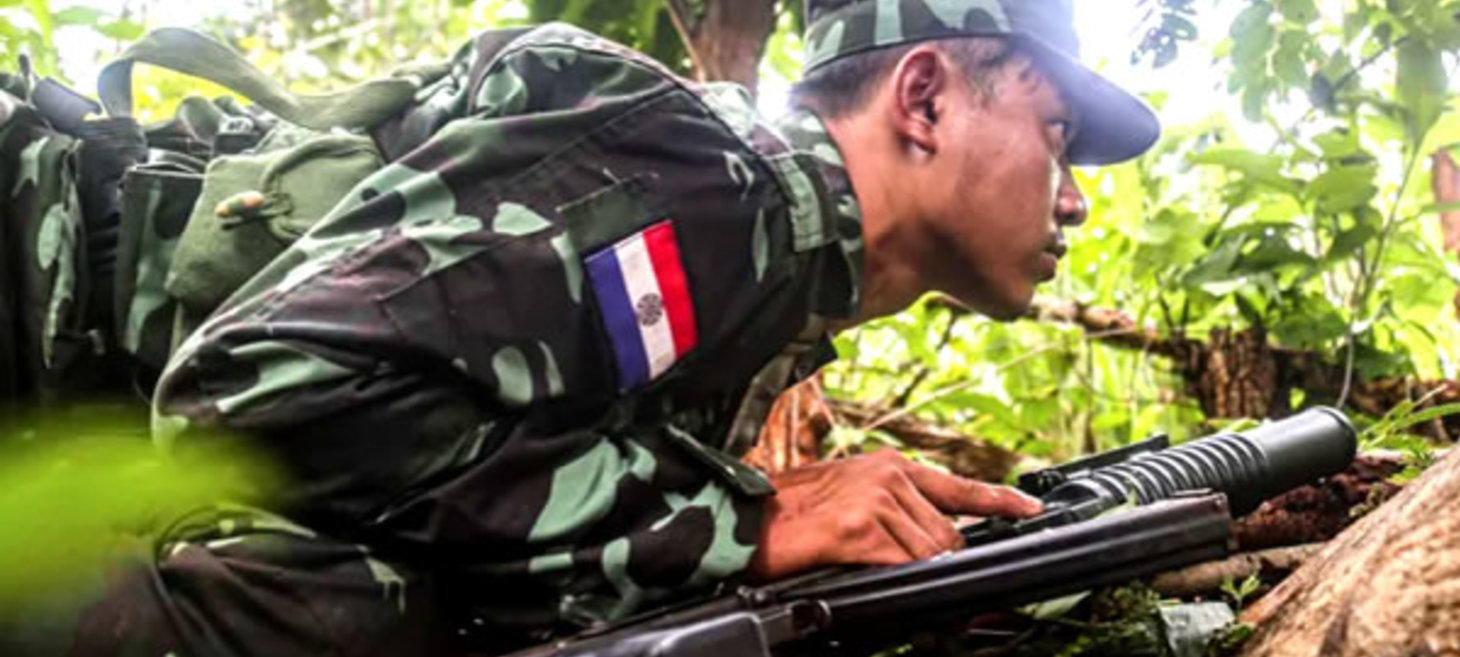
War in Myanmar is making Thai officials nervous with ominous signs that the military junta is faltering
The escalating conflict in Myanmar is causing significant concern in Thailand, particularly due to the increasing drug trafficking from the Golden Triangle, which is linked to the armed resistance against Myanmar's junta. The Royal Thai Army recently facilitated the release of 12 Moroccans detained in Myanmar, highlighting the complex security and humanitarian issues at the border. Meanwhile, the junta's control is faltering as ethnic militias and the People’s Defense Armed Forces (PDF) make significant gains, capturing strategic locations and threatening the junta's hold over regions like Kayah State. This instability is exacerbated by the involvement of foreign volunteers and the shifting allegiances of local militias, with the United WA State Army maintaining neutrality but being heavily involved in narcotics trafficking. The situation is further complicated by international dynamics, including Thai and Chinese interactions with the conflicting parties, and the economic implications for Thailand, which is witnessing a rise in criminal activities linked to the conflict.
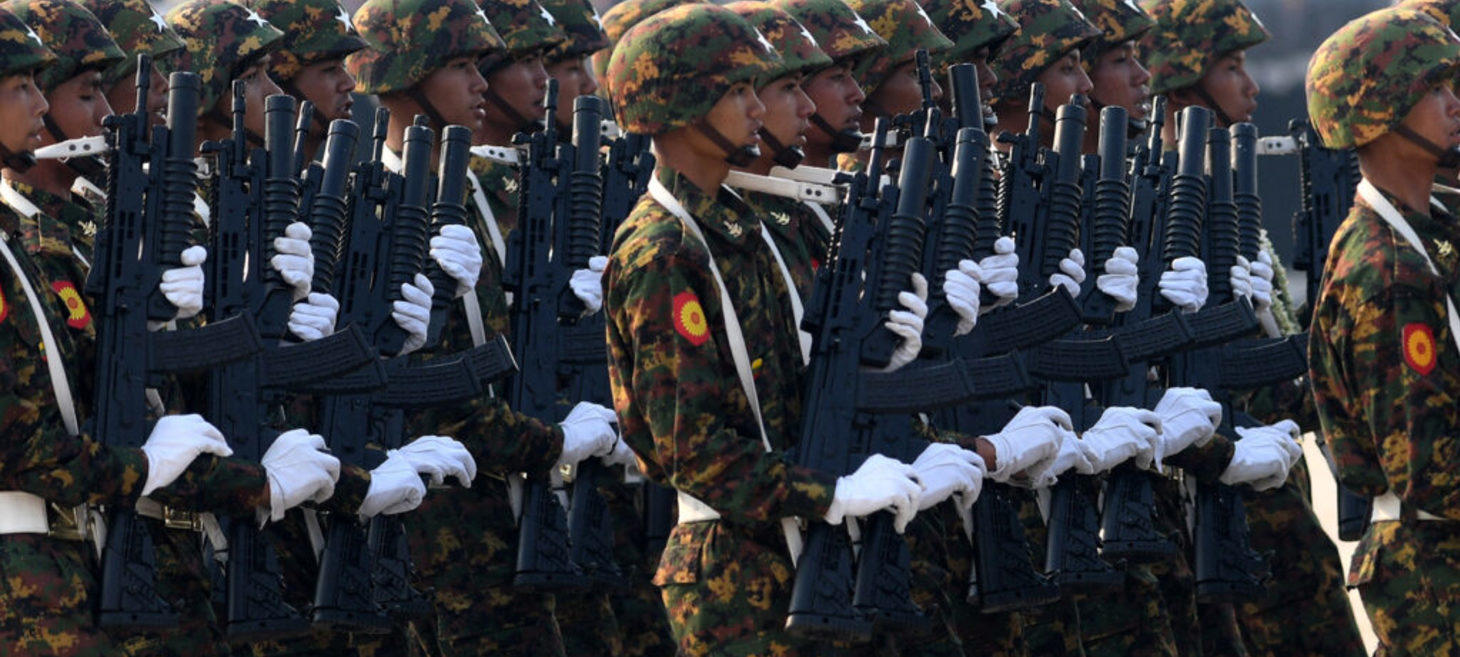
China Filling Huge Arms Order Placed by Myanmar Junta
China is actively supporting the Myanmar military junta by supplying military hardware and ammunition amidst escalating armed resistance within Myanmar. Sources indicate that Beijing is facilitating the shipment of arms to the regime, including a variety of military equipment for ground and air forces. This support underscores China's role as a significant supplier of weapons to the Myanmar regime, alongside Russia, with recent deliveries including jet fighters and advanced drones used against resistance and ethnic forces. Amidst ongoing conflicts and the strategic importance of maintaining control over regions near the Chinese border, the regime's deputy leader, Soe Win, is currently in China, ostensibly for the Green Development Forum but likely also to secure further arms deals. This visit follows intensified fighting in northern Shan State and other regions, highlighting the critical phase of the conflict and the junta's reliance on external support to sustain its military operations.
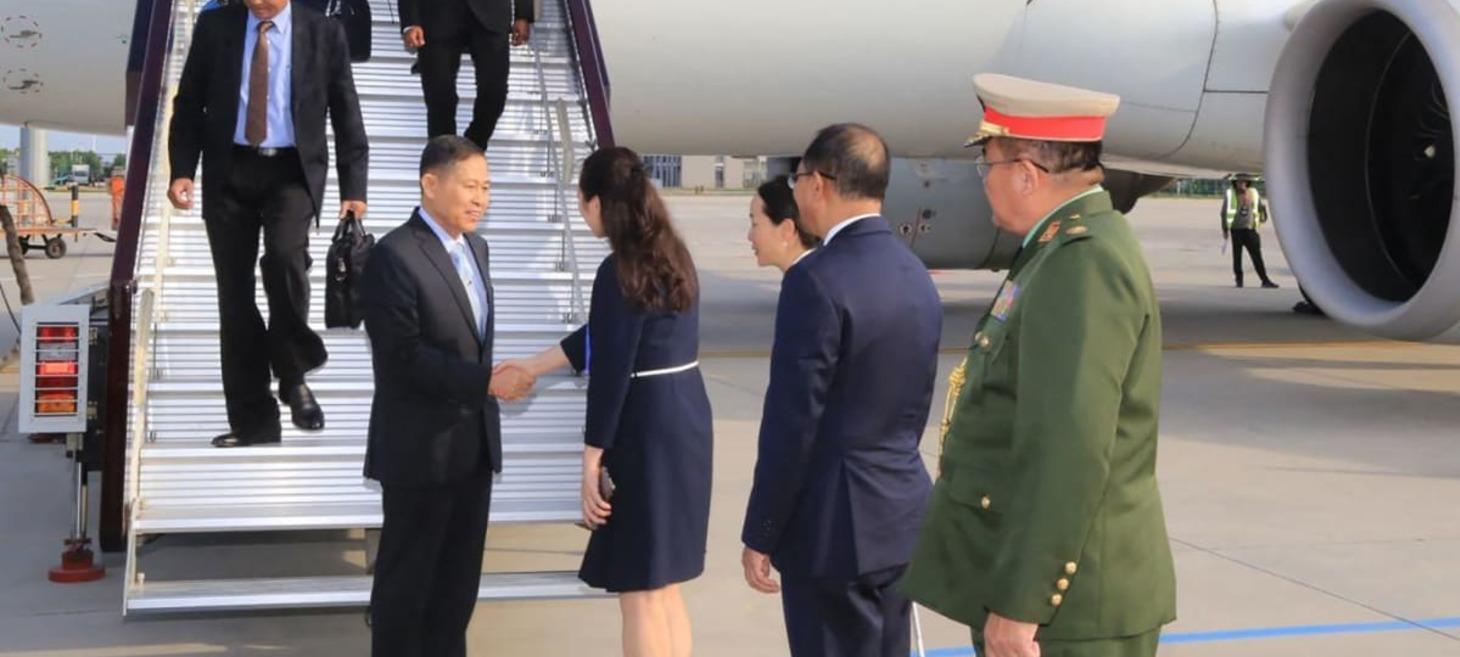
CNA Explains: Why is China engaging Myanmar's former and current leaders?
The recent visits of Myanmar's former President Thein Sein and Deputy Army Chief Soe Win to China reflect Beijing's nuanced approach towards Myanmar amidst the ongoing political turmoil. Contrary to appearances, these visits do not indicate a preference for any particular leader but rather China's strategy of engaging through multilateral platforms post-coup, avoiding exclusive bilateral meetings. The timing aligns with Beijing's increased engagement following the Operation 1027 military offensive, showcasing China's interest in maintaining regional stability and influencing the peace process. While China has brokered ceasefires and expressed concerns over the junta's handling of internal conflicts and cross-border issues, it has not officially hosted Military Chief Min Aung Hlaing, pending commitments to democratic transitions. These interactions underscore China's balancing act between supporting the junta, managing its own interests, and navigating international expectations regarding Myanmar's path to democracy.
Healthcare

Cholera outbreak suspected in multiple townships in Yangon Region
The Yangon Region has seen a notable rise in suspected cholera cases, with reports of increased infections and even a death in Thaketa Township. Local social assistance organizations and medical officials are actively responding by planning treatments and transferring severe cases to specialized facilities like Wai Bar Gi General Hospital. The spread of the disease is attributed to poor hygiene and contaminated food and water, prompting heightened demand for medications and protective measures. Despite the alarming situation, official confirmation of the cholary nature of the disease and the extent of fatalities remains unverified, with only social media and local reports indicating the severity of the outbreak.
Humanitarian
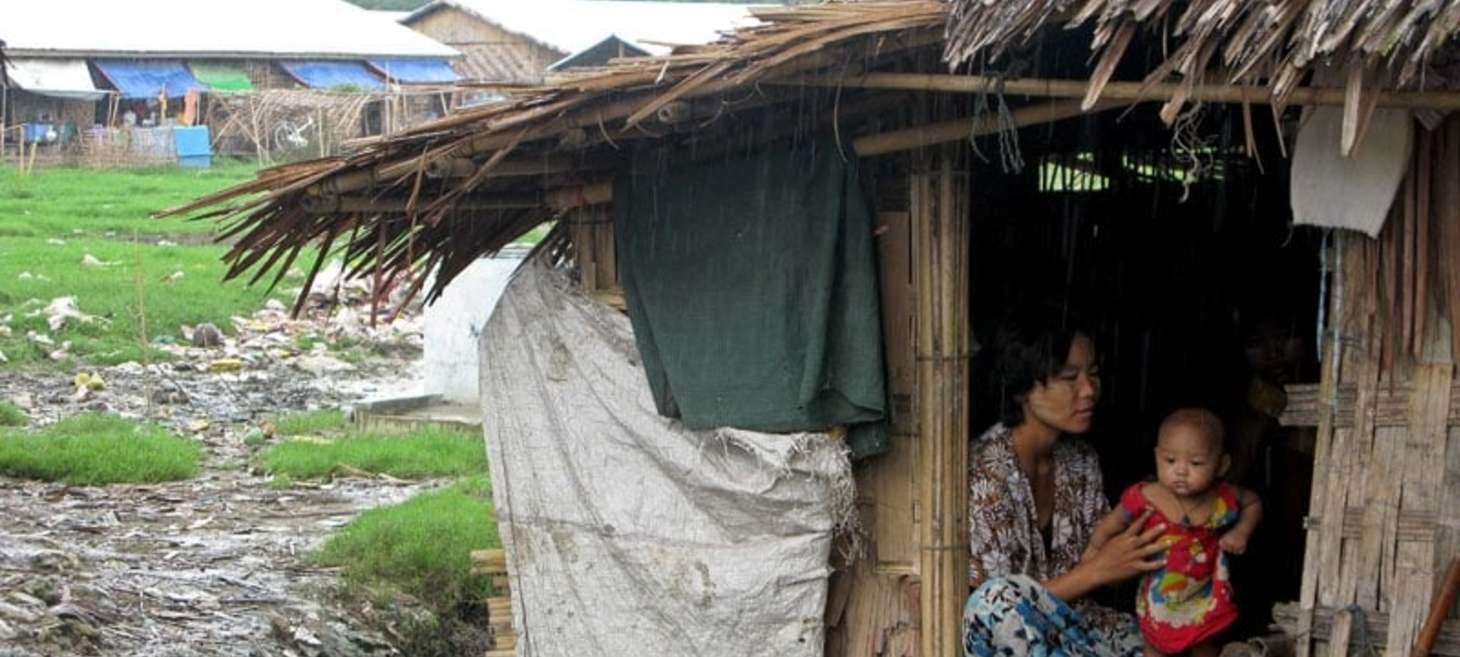
Sex and gender-based violence in Myanmar exacerbated by coup
The UN Committee on the Elimination of Discrimination against Women has expressed grave concern over the escalation of sexual and gender-based violence against women and girls in Myanmar since the military coup in February 2021. Highlighting the findings of the UN Special Rapporteur's report, the committee noted the widespread nature of these abuses, exacerbated by the ongoing conflict involving both the military junta and resistance forces. It emphasized the need for all parties, including non-state actors, to adhere to international human rights laws, particularly concerning the protection of women's rights and the prohibition of sexual and gender-based violence. The committee also addressed the plight of Rohingya women and girls under an apartheid-like regime, despite international court orders, and called for the removal of barriers preventing women's meaningful participation in political decision-making processes in Myanmar.
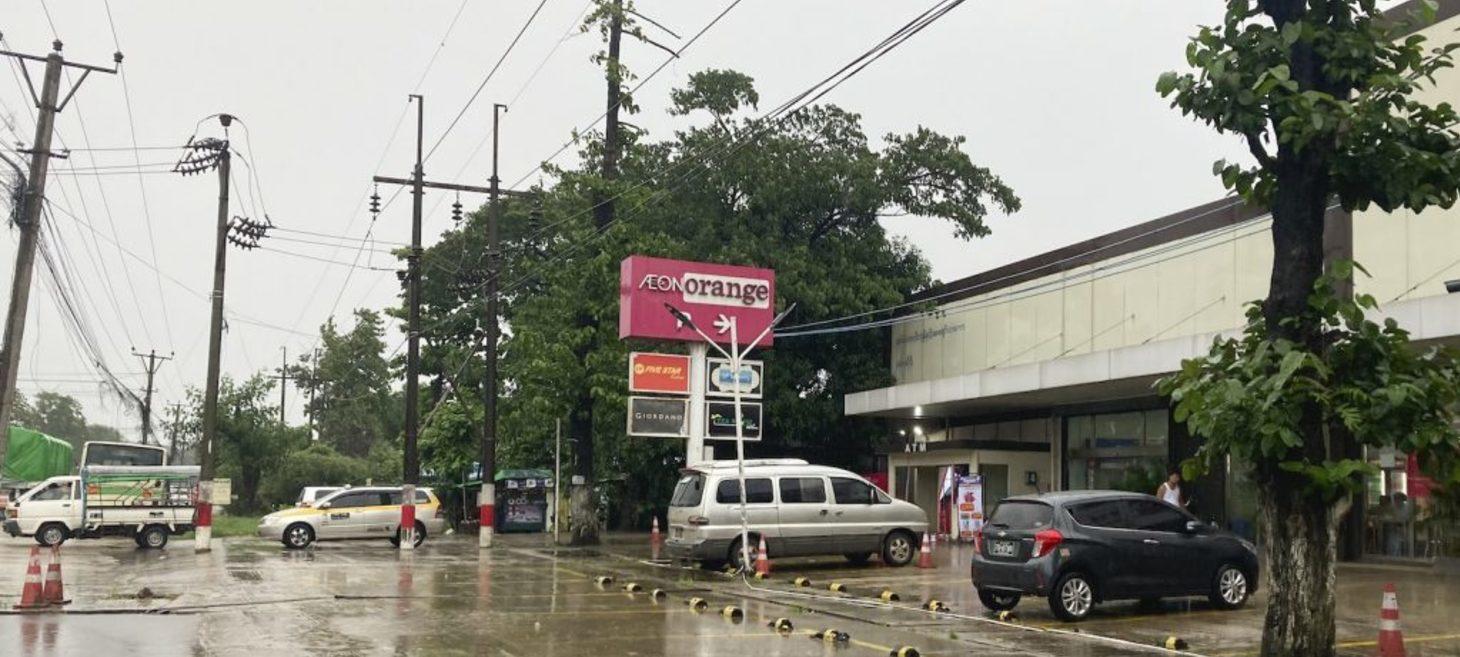
UN response facing setbacks in Burma; Over half of the country without access to the internet
The situation in Burma is increasingly dire as the U.N. Office for the Coordination of Humanitarian Affairs reports over three million internally displaced persons, with significant concerns in Arakan, Kachin, and northern Shan states due to ongoing conflicts and a recent collapse of a ceasefire. Additionally, the humanitarian efforts are severely underfunded, receiving only 12% of the needed funds. Compounding the crisis, a widespread internet shutdown affects over half the country, severely limiting access to information and communication. This shutdown is part of a broader suppression of freedom of expression, with internet access being deliberately blocked in several regions, forcing some residents to rely on alternatives like Starlink to maintain contact with the outside world.
Politics

Forming Myanmar’s New Political System Will Remain an Ideal but Never in Practicality
Efforts to establish a new political system in Myanmar face significant challenges due to the lack of commitment among key stakeholders to eliminate military influence and establish a federal democracy. Recent discussions, including rumored meetings between former President Thein Sein and Chinese officials over conflicts in northern Shan State, highlight the complexity of the situation. These talks aimed to address various issues, such as preventing certain armed groups from engaging in conflict and ensuring international neutrality. However, misinformation and shifting political stances among groups, including acceptance of the military-drafted constitution by some and a focus on nationalism by others, have complicated efforts towards change. Amidst these developments, the role of external actors like China and concerns from the Western community over the capacity of Ethnic Armed Organizations (EAOs) to effect change underscore the multifaceted nature of Myanmar's political landscape. As a result, the goal of a new political system remains elusive, with stakeholders pursuing divergent agendas amidst ongoing uncertainty and conflict.
Protests
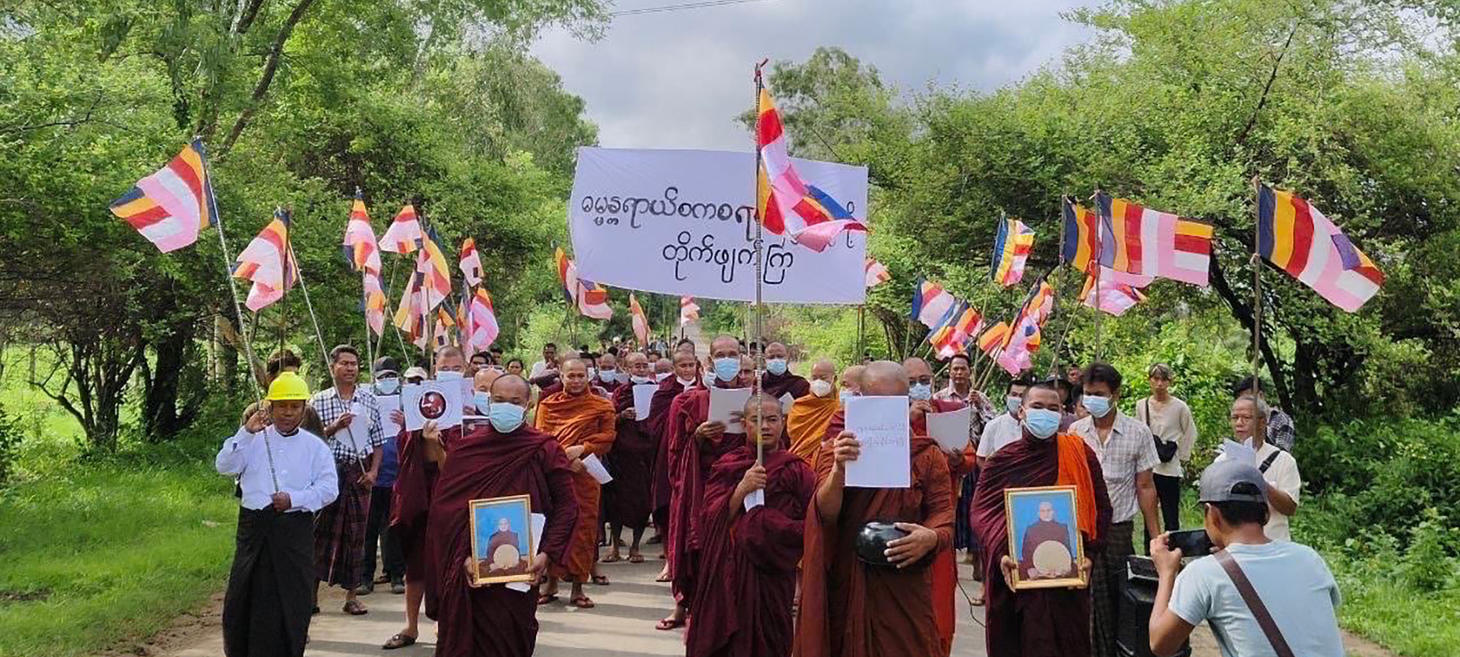
Monks’ Protest Over Abbot’s Killing by Myanmar Junta Spreads to 20 Townships
Protests led by Buddhist monks against the Myanmar military junta have escalated across the country following the killing of a senior monk, spreading to 20 townships in four regions. The protests began in Sagaing Region's Chaung-U Township after the junta's assassination of Sayadaw Bhaddanta Munindabhivamsa, a revered abbot, teacher, and author, on June 19. Monks and laypeople have united in a religious boycott, refusing alms from and denying religious services to those associated with the junta, a practice known as "pattanikkujjana." This form of protest has historical significance in Myanmar, with similar boycotts occurring in 1990 and 2007 in response to military actions against monks. The current wave of protests highlights the growing opposition to the military regime's actions among the religious community and broader society.